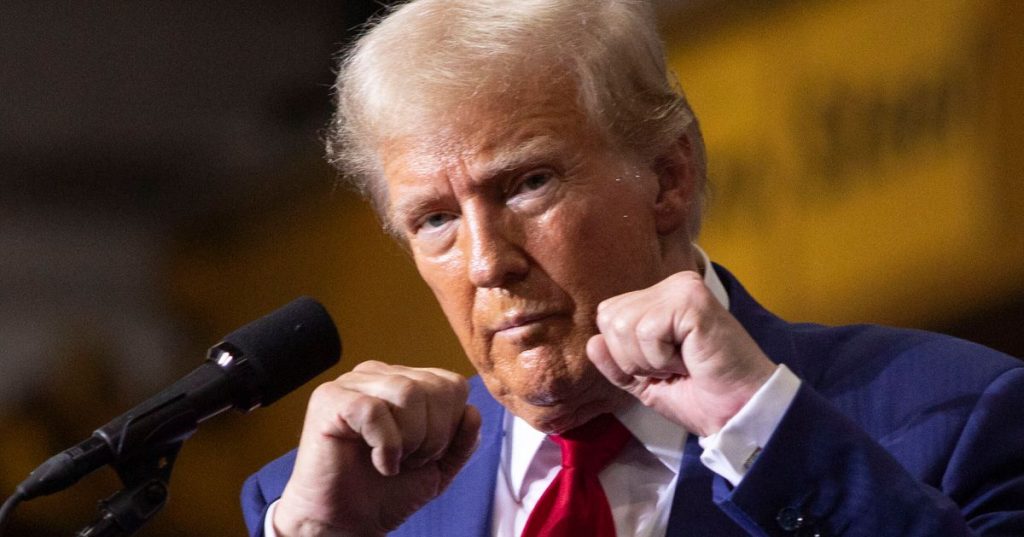Donald Trump has been facing criticism from Democratic opponents who label him as “weird,” a term he vehemently denies. The controversy began when Trump attacked Minnesota Governor Tim Walz for using the term to describe him and others on the right. Trump responded by asserting that he is not weird, and instead pointed to Walz and Senator JD Vance as the ones who are strange. Walz has explained that he uses the term weird to strip Trump and others of the fear-based power they wield, as he believes that fascists rely on fear to maintain control. Trump’s repeated denials of being weird indicate that the term has struck a nerve with him, leading him to vehemently defend his character, portraying himself and Vance as normal and not strange.
The use of the term “weird” in reference to Trump has gained traction among others on the left, further provoking Trump’s ire. He has been quick to refute the label at public appearances and interviews, insisting that he is anything but weird. Trump’s critics have dismissed his denials as unconvincing, pointing to his frequent mention of the issue as evidence that it bothers him. The former president has described himself and Vance as straight, smart, and not weird, aligning himself with attributes that he believes project a positive image. Trump’s strong reaction to being labeled as weird reflects the power of language and its ability to impact individuals on a personal level, even someone as prominent as a former president.
The controversy surrounding Trump being labeled as weird by his opponents highlights the divisive rhetoric that pervades political discourse. Using terms like weird to describe political adversaries can be seen as a tactic to undermine their credibility and power. Trump’s reaction to the label demonstrates the impact that words can have on public figures, as he seeks to defend his image and reputation against what he perceives as negative characterization. The use of language in politics can be a powerful tool for shaping public perception and influencing political outcomes, as demonstrated by the heated debate over Trump’s characterization as weird.
The ongoing debate over whether or not Trump is weird reveals the underlying tensions in American politics, as leaders and pundits constantly seek to portray their opponents in a negative light. By labeling Trump as weird, his critics are attempting to diminish his authority and influence, highlighting the power of language to shape public perception. Trump’s defensive responses to the label indicate his sensitivity to criticism and his eagerness to preserve his image as a strong and competent leader. The heated rhetoric surrounding Trump’s characterization as weird underscores the polarizing nature of contemporary politics and the role that language plays in shaping public opinion.
In conclusion, the controversy over Trump being labeled as weird by his opponents illustrates the ongoing struggle for power and influence in American politics. The use of language to undermine political adversaries can have a significant impact on public opinion and the outcome of political debates. Trump’s strong reaction to being called weird demonstrates the personal nature of political attacks and the power of language to shape public perception. As the debate over Trump’s character continues, it highlights the challenges and complexities of modern politics and the ways in which language can be used as a weapon in the ongoing battle for power and control.


